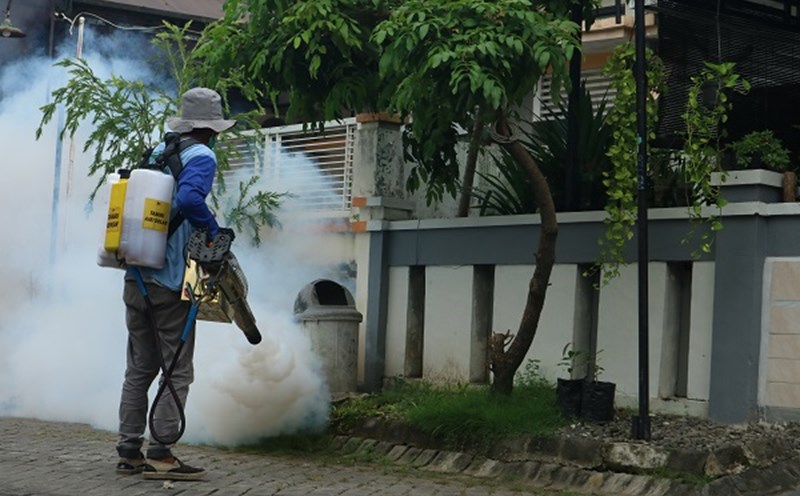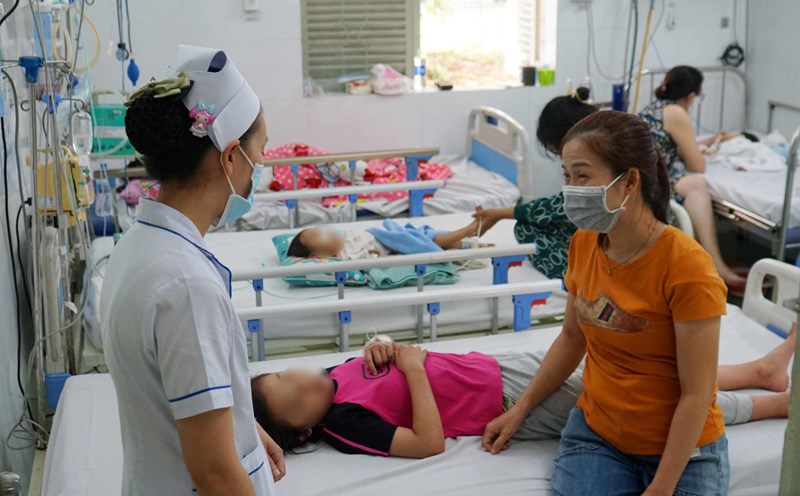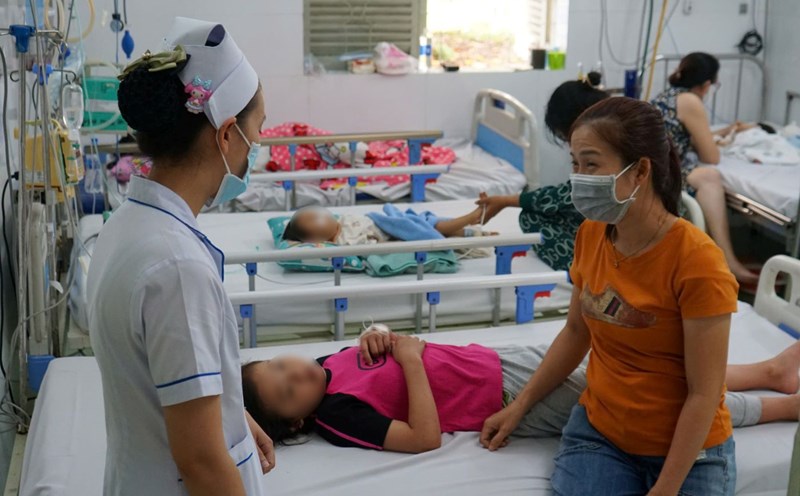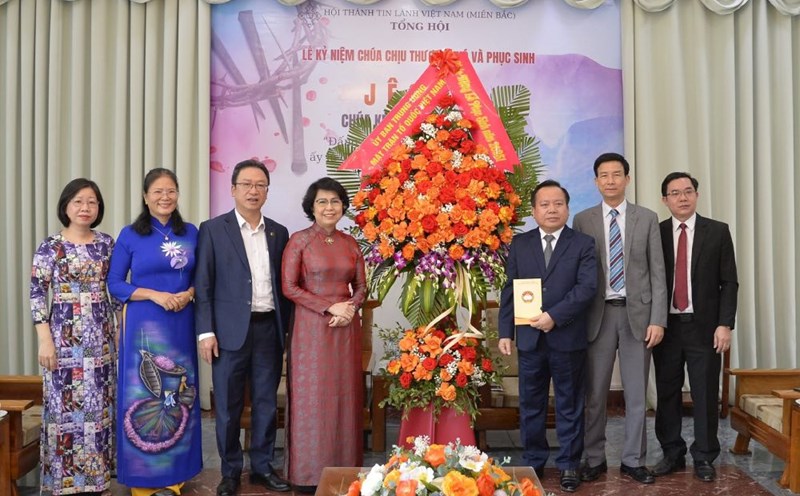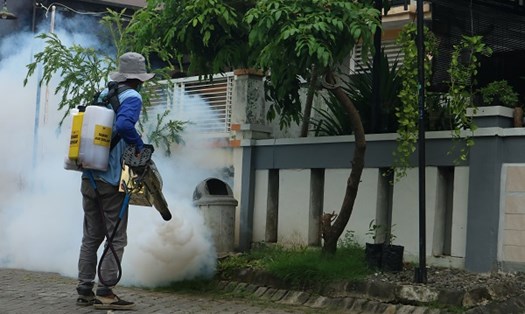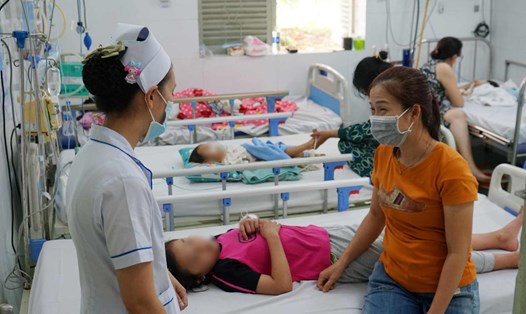Dengue fever is circulating, some cases are hospitalized due to dengue shock
In Ho Chi Minh City, in parallel with measles and hand, foot and mouth disease, dengue fever is still circulating. According to statistics from the Ho Chi Minh City Center for Disease Control, in week 13, the city recorded 319 cases of dengue fever, down 14.5% compared to the average of the previous 4 weeks.
The total number of dengue fever cases accumulated from the beginning of 2025 to week 13 is 5,691 cases. Districts with cases over 100,000 people are Can Gio district, District 7 and Thu Duc city.
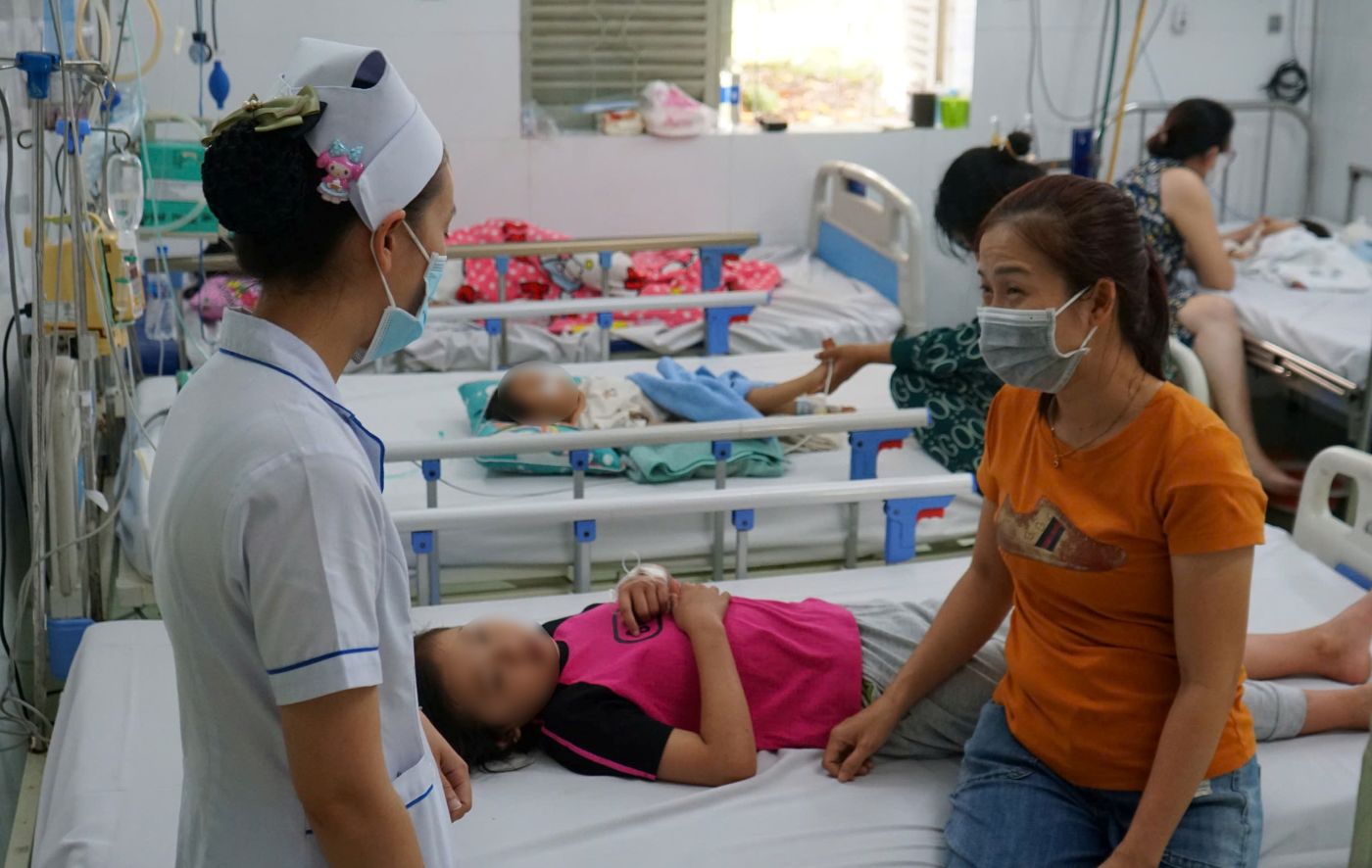
Recorded at Children's Hospital 1, dengue fever tends to be stable, higher than the same period in 2024 and equivalent to the 5-year average. In the first 3 months of 2025, the hospital had 333 cases of dengue fever admitted to the hospital, 60 cases of dengue shock.
In order to proactively respond to dengue fever, Thu Duc City Hospital has synchronously deployed many solutions including developing and updating treatment regimens according to the latest instructions, enhancing early diagnosis capacity, maintaining 24/7 operations of the infectious emergency department and ensuring adequate medicine and treatment equipment.
Pay attention to warning signs of danger
Doctor Wei Nhu Ngoc Chieu - General Internal Medicine Department of Thu Duc City Hospital - said that dengue fever often starts suddenly with typical symptoms such as high fever of 39-40 degrees Celsius, accompanied by severe headache, muscle and joint pain and a clear feeling of fatigue. In particular, the dangerous stage often appears on the 3-7th day of the disease, when the patient can quickly worsen.
People need to pay special attention to dangerous warning signs such as frequent and continuous abdominal pain, increased pain in the right sub- ribs, continuous vomiting, and signs of bleeding such as bleeding toothbrushes or subcutaneous bleeding, black stools, bleeding stools, vaginal bleeding... In addition, manifestations such as sluggishness, struggling, cold hands and feet or difficulty breathing are also signs that need to be closely monitored.
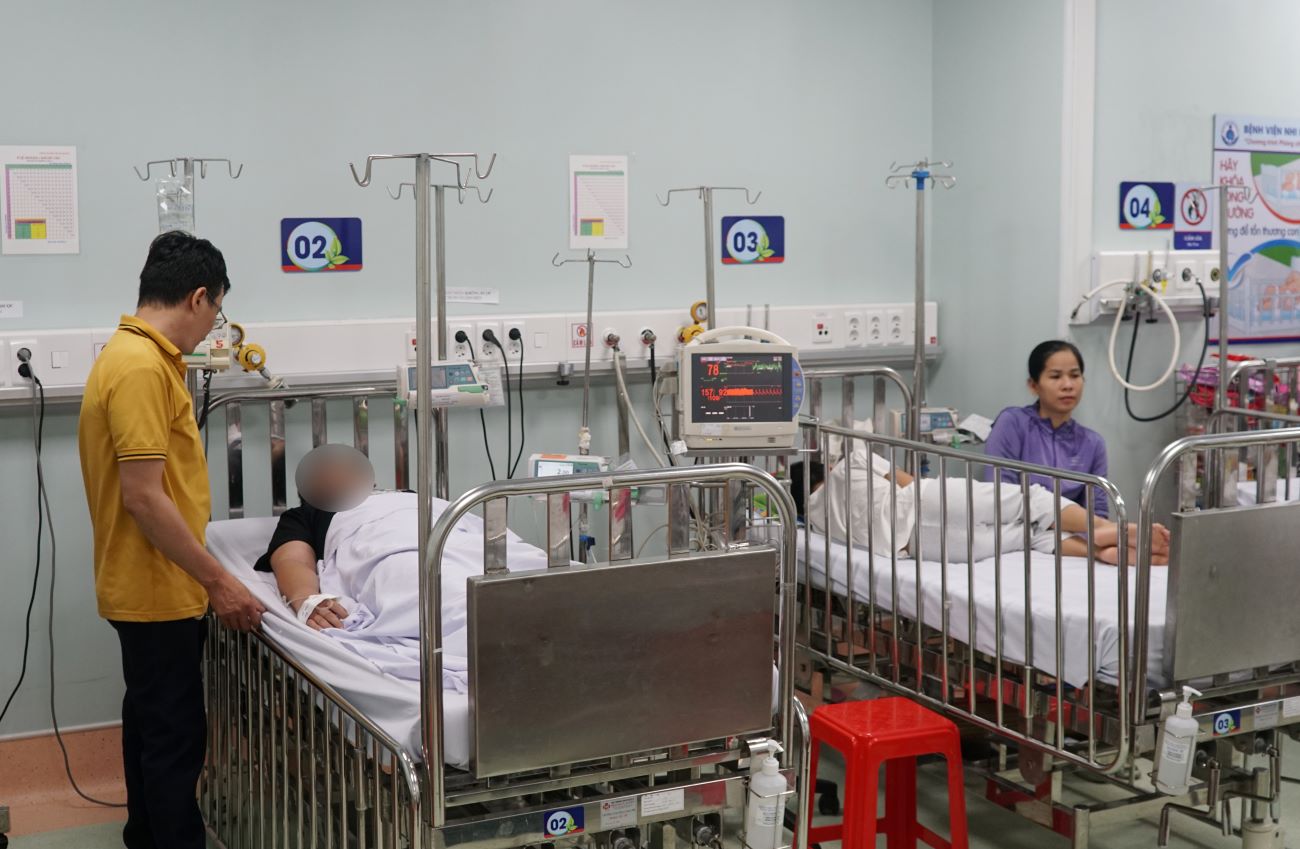
To proactively prevent, people need to strictly implement the "3 no" principle. First, do not let mosquito bites by using curtains while sleeping, wearing long-sleeved clothes when going out, and using appropriate mosquito repellent measures.
Second, do not let mosquitoes breed by covering water containers, often changing water in vases and venetion pots. Third, do not let mosquitoes stay by cleaning the environment and ensuring clear sewers.
Regarding vaccination, the Vietnamese Ministry of Health has currently licensed two vaccines, including Dengvaxia and QDENGA. Dengvaxia vaccine is vaccinated with 3 doses every 6 months, for people aged 9-45 or 9-60 years old, depending on regulations. Due to the requirement of screening before vaccination, this vaccine is not currently widely used.
Meanwhile, QDENGA vaccine can be vaccinated to people aged 4 and over, with a disease prevention effectiveness of over 80% and a prevention of over 90% of the risk of serious illness.
Doctor Ngoc Chieu emphasized that people who have had dengue fever are still at risk of reinfection. Preventing dengue fever is not only the responsibility of the health sector but also the responsibility of each citizen and the community.
Each family needs to regularly check, detect and remove lumps in the home and surrounding areas. In particular, when detecting suspected cases of disease, people need to notify local health agencies.

